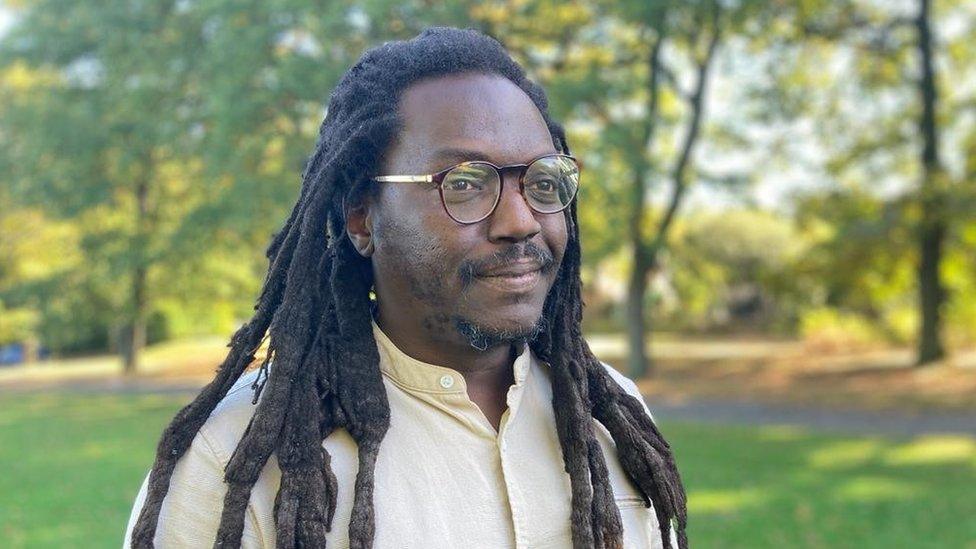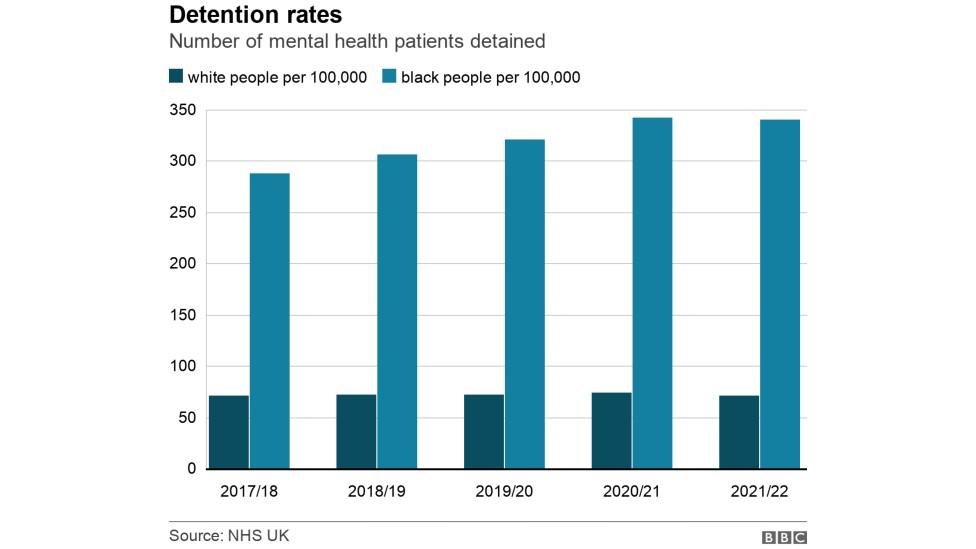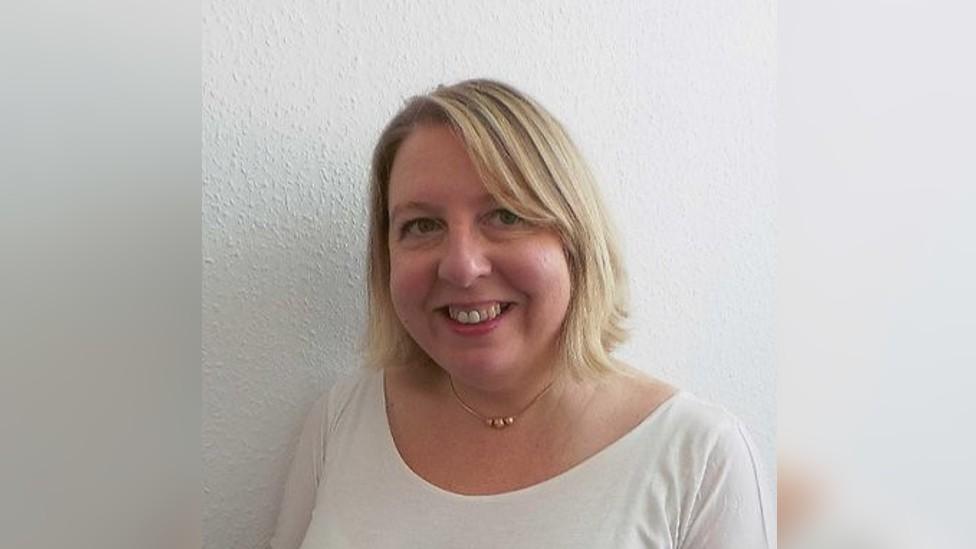Sheffield: Call to tackle 'systemic racism' in mental health care
- Published

Gambinga said it was scary how well he hid his struggles with mental health
A suicide survivor has said there are "systemic issues" with racism in the mental health system.
Gambinga Gambinga, 43, from Sheffield, said black people "have a rougher ride" in getting support than white people.
NHS figures show a black person suffering with a mental health episode was nearly five times more likely than a similar white person to be detained.
The government said it was committed to "addressing racial disparities" in mental health care.
Mental health charity Mind said the Mental Health Act "was systematically racist" in its current form.
Mr Gambinga, who was born in Zimbabwe, was diagnosed with bipolar disorder after moving to Sheffield in 2003 at the age of 24.
However, he said he did not get help until after his suicide attempt on New Year's Eve 2015.
"I was planning my death, but still seeing friends and family and having fun with them," he said.
"The scary part is how well I hid it. That's the terrifying thought.
"First and second-generation immigrants from Africa - we're spectacular at hiding it.
"It's culture, it's upbringing - that whole 'man up, pull your socks up', that kind of thing, but also because a lot of us have people back home that are depending on us."
'Failed historically'
Mr Gambinga ended up in crisis care after a neighbour called an ambulance, and it was only then he started getting help, including talking therapy and medication.
He said mental health service staff did not always understand black people and their culture.
"I think we are being failed and I think we have been failed historically," he said.
Figures from the NHS show that in the last five years the rate at which black people have been detained under the Mental Health Act has increased, while detention rates for white people have remained flat.
Under the Mental Health Act, a person can be detained if they are considered to be suffering from a mental disorder and in immediate need of care or control.

Rheian Davies, head of legal at the Mind charity, said people of Black African and Caribbean heritage have consistently been over-represented in mental health crisis care, ending up in the system via uncomfortable routes, such as via the police.
She said: "They are at a greater risk of being physically or chemically restrained against their will, as well as more likely to be readmitted to hospital without getting the right support."
'Racism within the system'
Mr Gambinga said: "The journey for most black men is you end up in mental health services via the police. That is almost always the case that you hide it so well and you carry on going and then one day you go out drinking and you snap.
"You either get in a fight or some people have a nervous breakdown, but almost always the first port of call is someone has called the police."
However, he said: "I think we in the black community also have to take ownership of our own wellbeing.
"We should take a very honest, but I think harsh look at ourselves to ask why are black men more likely to attempt suicide than any other group in the country and why are black men more likely to only ever get help when it's forced on them."
Talking about what he called "racism within the system" Mr Gambinga said: "It's less blatant out-and-out name calling or withholding services because you're black.
"I think a lot more now is micro-aggressions or systemic issues that just mean black and ethnic minority people have a rougher ride within the system than white people."
Mr Gambinga is calling for better training for staff working in mental health services, and said things needed to change to reduce the disproportionately high rate of black people being detained under the Mental Health Act.

Rheian Davies, head of the legal unit at Mind, said people of Black African and Caribbean heritage were at a greater risk of being restrained against their will
Ms Davies said the government's draft mental health bill was "an opportunity to create a step change for black people with mental health problems" who have "for far too long been let down by the system which is meant to protect them".
The bill has "many welcome measures" but needed to go much further on "explicitly tackling racism in mental health services", she added.
Mr Gambinga now uses his experience to help other black people struggling with their mental health. He works for the Sheffield Afro Caribbean Mental Health Association.
As part of his role, he works with staff in mental health hospitals in the city to help them understand service users more.
He said, for example, differences in how people negatively associate eye contact if they grew up in Africa could cause issues during care.
"A lot of things are probably misunderstandings rather than out-and-out racism, but in the end they all add up."
As well as educating staff, he also works with the black community in hospitals so they can understand the mental health system more.
He hopes he can "bridge the gap" between the community, NHS and the police.
A Department of Health and Social Care spokesperson said the government "is committed to reforming the Mental Health Act to address racial disparities in mental health services" including "tightening the criteria under which people can be detained".
They said they are piloting advocacy services to support the needs of people from ethnic minority groups to "ensure cultural differences - such as religious preferences or specific communication requirements - are understood and acted upon".
If you have been affected by issues raised in this story, visit the BBC Action Line.

Follow BBC Yorkshire on Facebook, external, Twitter, external and Instagram, external. Send your story ideas to yorkslincs.news@bbc.co.uk, external.